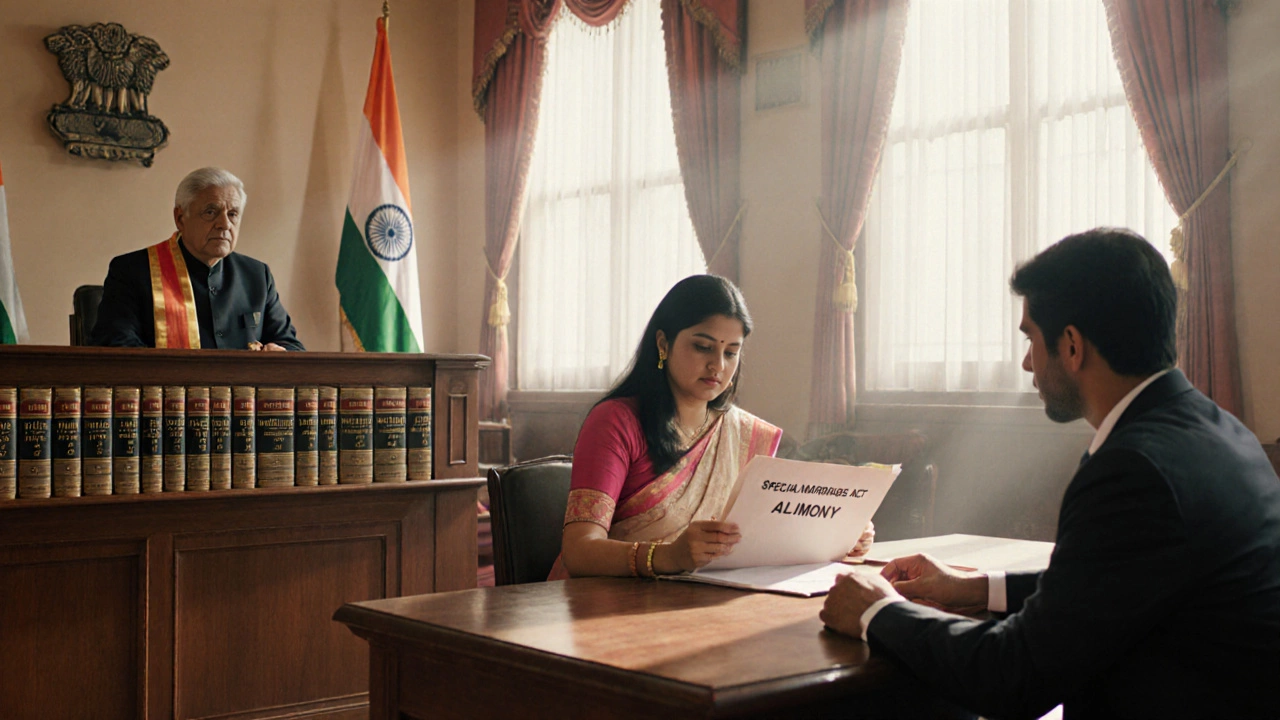Family Law India: Your Practical Guide to Marriage, Divorce & More
When navigating Family Law in India, the body of statutes and case law that govern marriage, divorce, succession, adoption, and related family matters in the Indian legal system. Also known as Indian family law, it shapes how couples, parents, and relatives handle personal legal issues every day. Whether you’re filing a petition, registering a wedding online, or checking if you can remarry after a divorce, the rules are specific and often change with new amendments. This page pulls together the most relevant topics so you can quickly find the guidance you need without sifting through dense legal texts.
Key Areas Covered
One of the most common challenges under Divorce, the legal process that ends a marriage in India, governed primarily by the Hindu Marriage Act, Special Marriage Act, and related statutes. Also called Indian divorce law, it requires you to understand grounds for divorce, evidentiary standards, and procedural steps. For example, proving a sexless marriage is a specific ground that demands clear proof of non-consummation; courts look for medical reports, testimonies, and sometimes DNA evidence. If you’re considering a quick divorce, mutual consent routes can shorten the timeline, but you still need to meet the statutory cooling‑off period unless a waiver is granted.
Before any divorce can be finalized, the marriage itself must be properly recorded. Marriage Registration, the official process of documenting a marriage with the local authorities, now often done through online portals like the Ministry of Law and Justice’s e‑Marry system, is the legal proof that a union exists. It includes submitting identity documents, proof of age, and a marriage certificate. The online system, updated for 2025, streamlines verification and reduces paperwork, but you still need to follow each state’s specific fee structure and timeline. A correctly issued certificate is crucial not just for divorce, but also for applying for loans, visas, or inheriting property.
After a divorce, many wonder about the possibility of tying the knot again. Remarriage, the legal act of entering a new marriage after a prior marriage has been dissolved, which in India involves a mandatory waiting period and fresh registration, is governed by both personal law and the Special Marriage Act. The waiting period varies: for most religious communities it’s 90 days, while the court can waive it in cases of proven cruelty or long separation. You’ll also need to submit a decree of divorce, proof of no pending property disputes, and a new set of documents for the marriage certificate. Understanding these steps helps avoid delays, especially when applying for visas or financial benefits tied to marital status.
Another niche but increasingly relevant topic is family law India when dealing with a sexless marriage. Courts treat non‑consummation as a serious ground for divorce, but the onus is on the petitioner to provide convincing proof. Evidence can include medical examinations, sworn statements from close relatives, and any communication that demonstrates the couple never engaged in sexual relations. Legal experts suggest compiling a timeline of events, gathering any relevant photos or messages, and consulting a qualified divorce lawyer who can frame the evidence to meet the family court’s standards. Successfully proving this ground can fast‑track the divorce and affect alimony and custody decisions.
The collection below reflects the breadth of these issues. You’ll find step‑by‑step guides on filing a divorce, registering your marriage online in 2025, navigating the waiting period for remarriage, and even detailed instructions for proving a sexless marriage in court. Each article is written to help you act confidently, whether you’re a first‑time petitioner, a legal professional, or simply someone looking to understand their rights under Indian family law. Dive into the posts to get the practical tools you need for every stage of your family legal journey.

Divorce in India: Who Suffers Most After Separation?
Explore who faces the greatest hardships after divorce in India-women, men or children-and learn practical steps to lessen financial, emotional, and legal pain.